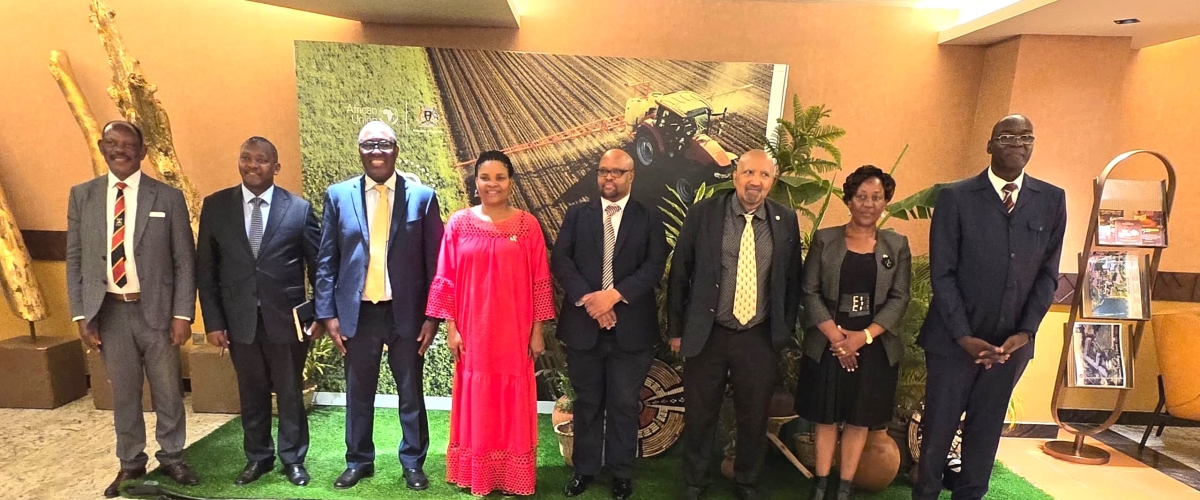
The Kampala Summit was organized by the African Union and hosted at Speke Resort in Munyonyo, Kampala, Uganda. The adoption of the Kampala Declaration marked the conclusion of the CAADP framework while paving the way toward realizing the ambitious vision of Agenda 2063: The Africa We Want.
The Human Capacity Development side event underscored the critical role of education, training, and knowledge management in transforming Africa's agricultural sector to address poverty and food. Dr. David Nielson, Formerly- Lead Agriculture Economist at the World Bank, in his keynote presentation, highlighted that many rural populations survive on less than $2 per day, emphasizing the need for formal education, agricultural extension, and innovative information systems to drive growth and improve nutrition. Key challenges include low participation and completion rates in primary education, outdated tertiary curricula, and isolated agricultural advisory services.
An AUC Representative, Dr. Mahaman Bachir Saley under the Department for Education, Science, Technology and Innovation (ESTI) gave opening remarks at the side event emphasized building consensus by uniting all stakeholders to ensure all voices are heard. He highlighted the need for SMART goals and a clear roadmap to strengthen Africa's human capital. Education and training, as the theme of the year, were identified as key to equipping youth for the future. The representative also called for the adoption of innovative technology to enhance agricultural productivity and the strengthening of human and policy factors to drive sustainable development.
Dr. Simeon Ehui, Director General of IITA and CGIAR Regional Director for Africa, emphasized agriculture as key to economic transformation and highlighted the need to bridge the gap between policy and research. He noted the power of partnerships, as demonstrated by training 700,000 people in 2023, and stressed the importance of updating outdated curricula, with over 65% of programs needing revision. “Aligning education with policy and strengthening partnerships, particularly between AIRES and CGIAR, were identified as critical steps. The CGIAR’s reforms aim to maximize impact and drive meaningful change across Africa”, he said.
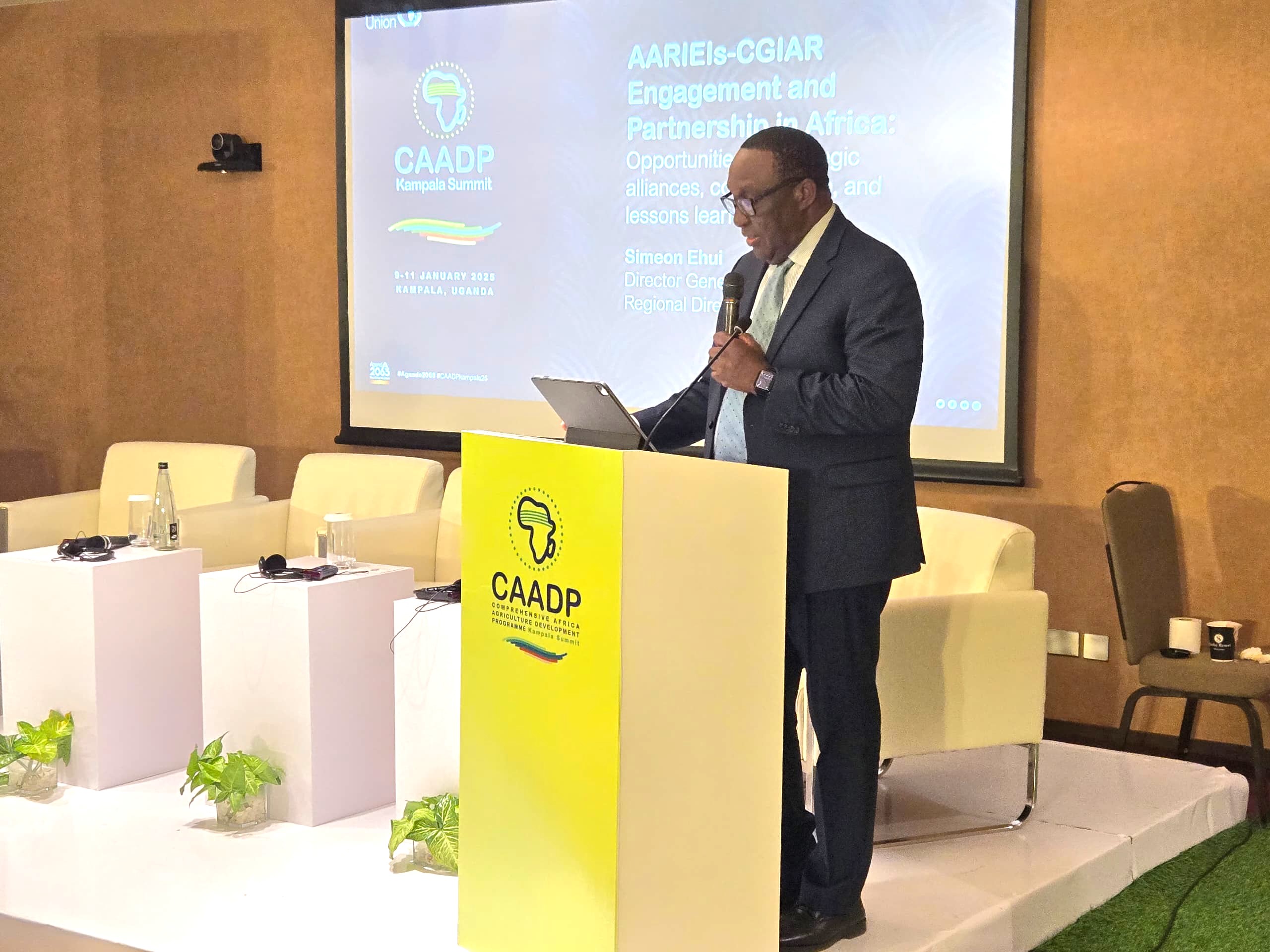
Prof. Cliff Dlamini, Executive Director of CCARDESA, highlighted the transformative role of advanced education, particularly PhDs, in driving innovation. He reflected on how a single PhD research project could revolutionize a sector. Africa must invest in human capital and align research with agricultural policy to unlock similar potential,” he said. Prof. Dlamini further emphasized the importance of partnerships and knowledge management systems in translating research into actionable solutions for farmers. He also criticized the decision to phase out skills colleges offering diploma programs, replacing them with universities, highlighting the significant gap in essential skill sets.
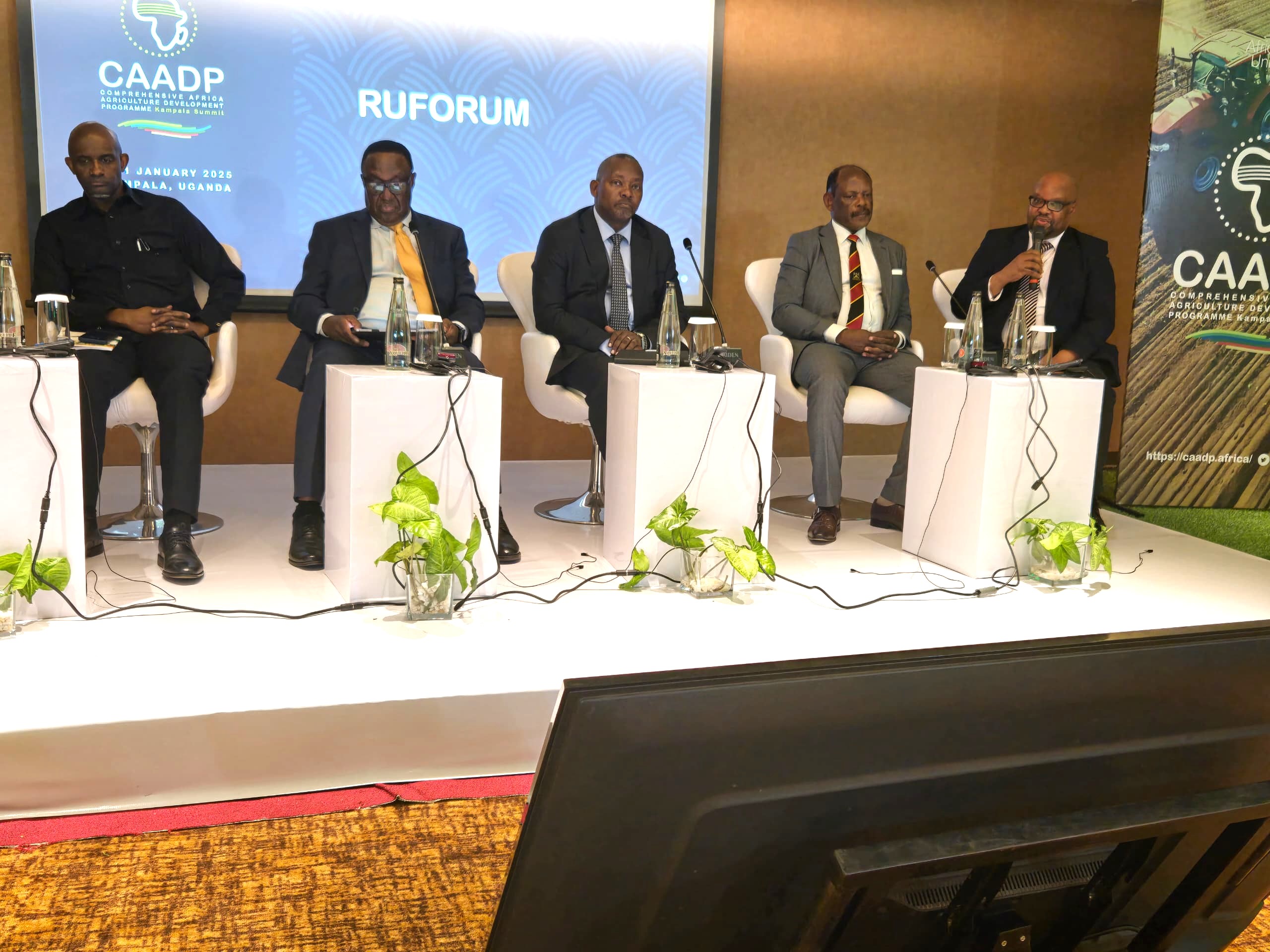
Dr Aggrey Agumya, FARA Executive Director echoed that partnerships and investments in education and research are the keys to sustainable agricultural growth. “Collaboration among governments, research institutions, and development partners will drive the needed transformation. Together, we can achieve the Africa we envision—a food-secure, economically prosperous, and environmentally sustainable continent,” he stated.
The AFAAS Executive Director, Dr. Silim M. Nahdy, in closing, emphasized the importance of business models for developing human capital and addressing skills gaps. Blended models, such as decentralized Knowledge Management (KM) hubs, partnerships, talent, and technology-enabled frameworks, were highlighted as crucial for scalability, innovation, and employability. They advocated for leveraging tools like social media, AI, satellite, and apps to enhance knowledge transfer and translation, particularly in e-extension services. The need for policy alignment, strengthened agricultural marketing, financial management, and equity promotion was underscored as fundamental. Integrating knowledge management (KM) and fostering partnerships were seen as key to transforming agriculture at both national and grassroots levels.
Ms. Elizabeth Nsimadala,President of the Eastern Africa Farmers Federation, the farmer representative, emphasized the importance of human capital development (HCD), likening it to a "girl needing further exploration." She stressed the often-overlooked role of policy, which is critical for adopting agricultural technologies. Issues like varied and unpredictable taxes, funding challenges, and governance concerns were highlighted as barriers for farmers. She called for transformative leadership, particularly for youth, to empower them to be the leaders of tomorrow and drive meaningful change in agriculture.
On the overall, the side event further emphasized strengthened partnerships, inclusive policy alignment, and scalable business models to bridge the gap between research and practical applications. There was also an emphasis on fostering transformative leadership among youth and women to build human capital that aligns with innovative technologies, agripreneurship, and problem-solving approaches. It was noted that stakeholders are committed to co-creating solutions with end-users, adopting blended business models, and leveraging tools like AI, social media, and satellite technology to enhance agricultural productivity and knowledge transfer, ensuring inclusivity and equity in the sector's development.
Another meeting highlight was the ARIEIs emphasized the importance of modernizing Africa's agricultural research systems, stating, “By working with CGIAR, we aim to bridge the gap between research and practice, ensuring our findings translate into tangible benefits for farmers across Africa.”
CAADP-XP4 Programme Dr. Baitsi Podisi emphasized the need for unity of purpose in mobilizing funds as a consortium rather than fostering unhealthy competition among stakeholders. He acknowledged the reality of limited resources but underscored the importance of collaboration to maximize impact. Dr. Podisi highlighted that working together ensures inclusivity and equity, avoiding situations where some entities fight for resources.
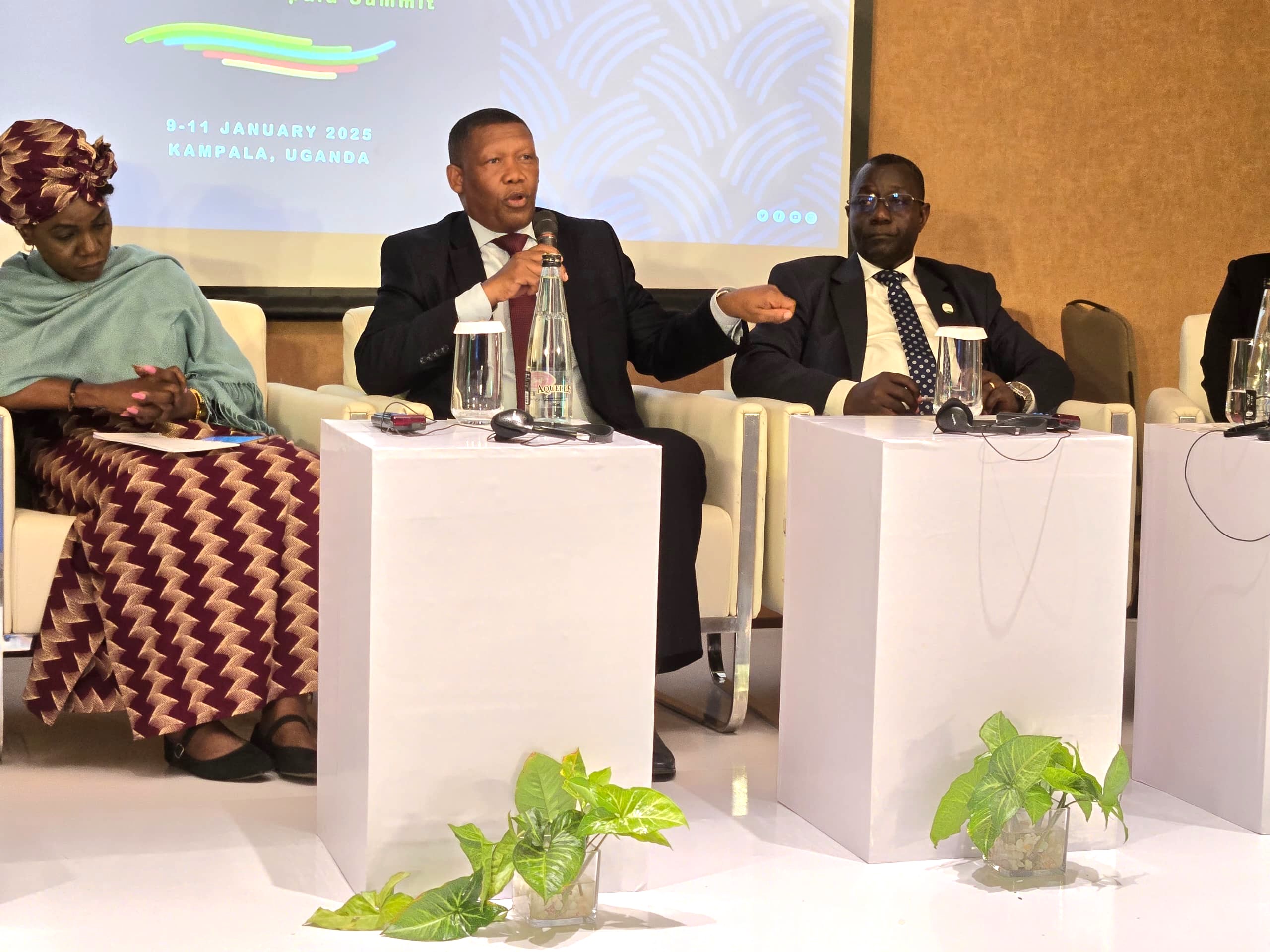
ASARECA Executive Director Dr. Sylvester Dickson Baguma called for collective approach that fosters mutual respect, leverages shared expertise, and enhances the efficiency and effectiveness of resource utilization. Such a unified strategy aligns with the broader sustainability and capacity building goals, enabling all stakeholders to contribute to and benefit from the partnership. By prioritizing partnership over rivalry, the consortium can build resilience, scale innovation, and address critical challenges in the agricultural sector more holistically, he added.
CCARDESA also participated in an Agroecology event hosted by the Alliance for Food Sovereignty in Africa (AFASA), which highlighted agroecology as a climate-resilient, health-focused, and sustainable agricultural practice that reduces reliance on external inputs and restores soil health. I was shared that successful case studies from Senegal, Zimbabwe, Rwanda, and Malawi demonstrated the potential of agroecology to increase yields and improve food security. It was explained that smallholder farmers, produce 80% of food, are central to agroecology but face challenges such as market access and policy incoherence. Current advocacy emphasizes integrating agroecology into curricula, promoting health-based narratives, empowering women, and allocating at least 30% of agricultural budgets to agroecology. Political and grassroots campaigns, like “My Food is African,” aim to mobilize stakeholders and align policies towards sustainable food systems by emphasizing the consumption of African foods.
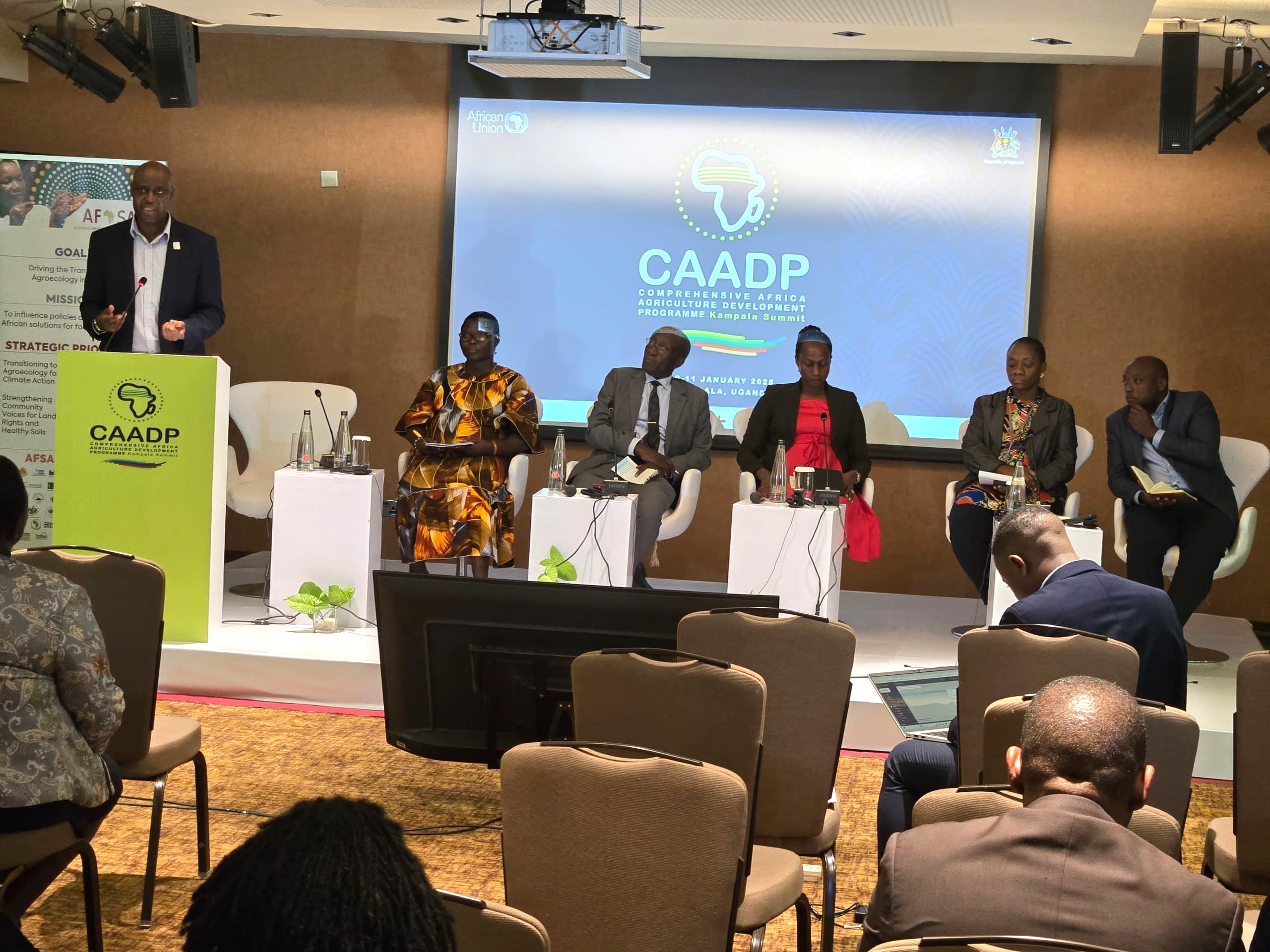
The sessions were highly enriching, leaving delegates from the Kampala Summit inspired, rejuvenated, and energized. Participants departed with a renewed sense of purpose, excited about the newly forged networks and collaborative opportunities. The summit’s outcomes sparked optimism and a collective commitment to advancing agricultural transformation. Representing CCARDESA at this pivotal event were Prof. Cliff Dlamini, Dr. Baitsi Podisi, Dr. Majola Mabuza, and Mrs. Bridget Kakuwa-Kasongamulilo showcasing the organization’s dedication to driving impactful change in the sector





